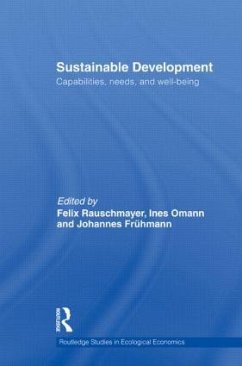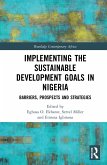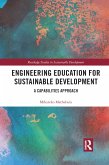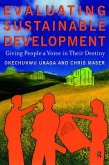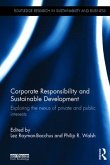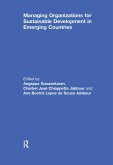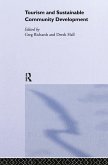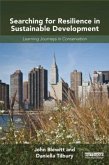This groundbreaking new work establishes links between sustainable development, needs, well-being, and the capabilities approach that is central to human development and the United Nations Development Programme. By challenging the role of people in sustainability policy, this collection's argument refocuses sustainable development on needs and makes it easier for people to relate positively to its core values. This exciting new book incites a whole new way of looking at sustainable development. Even though the word 'needs' is central to the most popular definition of sustainable development, the concepts of needs and capabilities remain within the debate on human development, without going further into intergenerational justice or environmental protection. The discussion of needs reaches non-academics in a more direct way than talking about abstract thresholds, substitutability and other issues dear to academic debate on sustainability. This collection links the questions of intra- and intergenerational justice with issues of quality of life, life courses, and well-being. Dealing with needs entails dealing with deeper layers of consciousness, revealing emotions and questioning habits and values. In this way, the collection presents an opportunity for substantial social change as well as a challenge for research and policy-making. This thought-provoking collection asks its readers to reconsider the role of needs based on the philosophical arguments presented, to understand how sustainability can become a part of the capability approach, to better consider the dependency of life chances on birth contingencies, and to see the relationship between capabilities, needs, and well-being in a different light. The editors finish by clarifying the possibilities and challenges of a needs-based sustainability policy for policy makers, and explain the role of deeply held values. This book should be of interest to postgraduates and researchers in Environmental and Ecological Economics, as well as many other disciplines including Political Economics, Social Ecology, Human Ecology, Sustainability Science and Developmental Politics.
Hinweis: Dieser Artikel kann nur an eine deutsche Lieferadresse ausgeliefert werden.
Hinweis: Dieser Artikel kann nur an eine deutsche Lieferadresse ausgeliefert werden.

